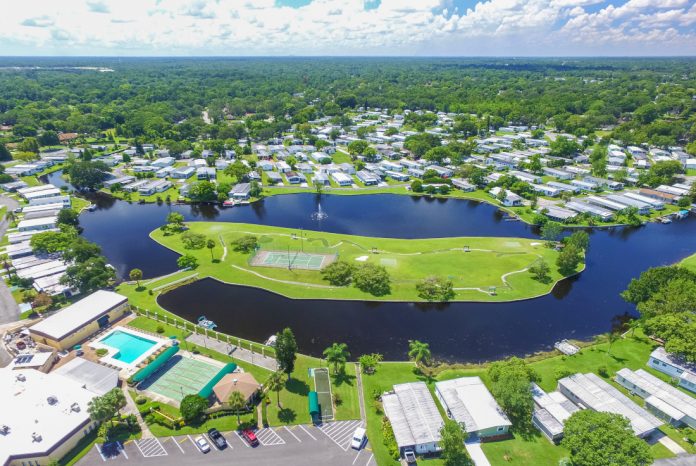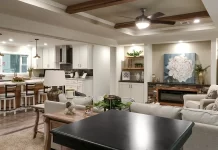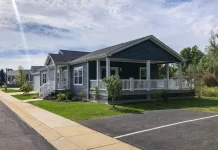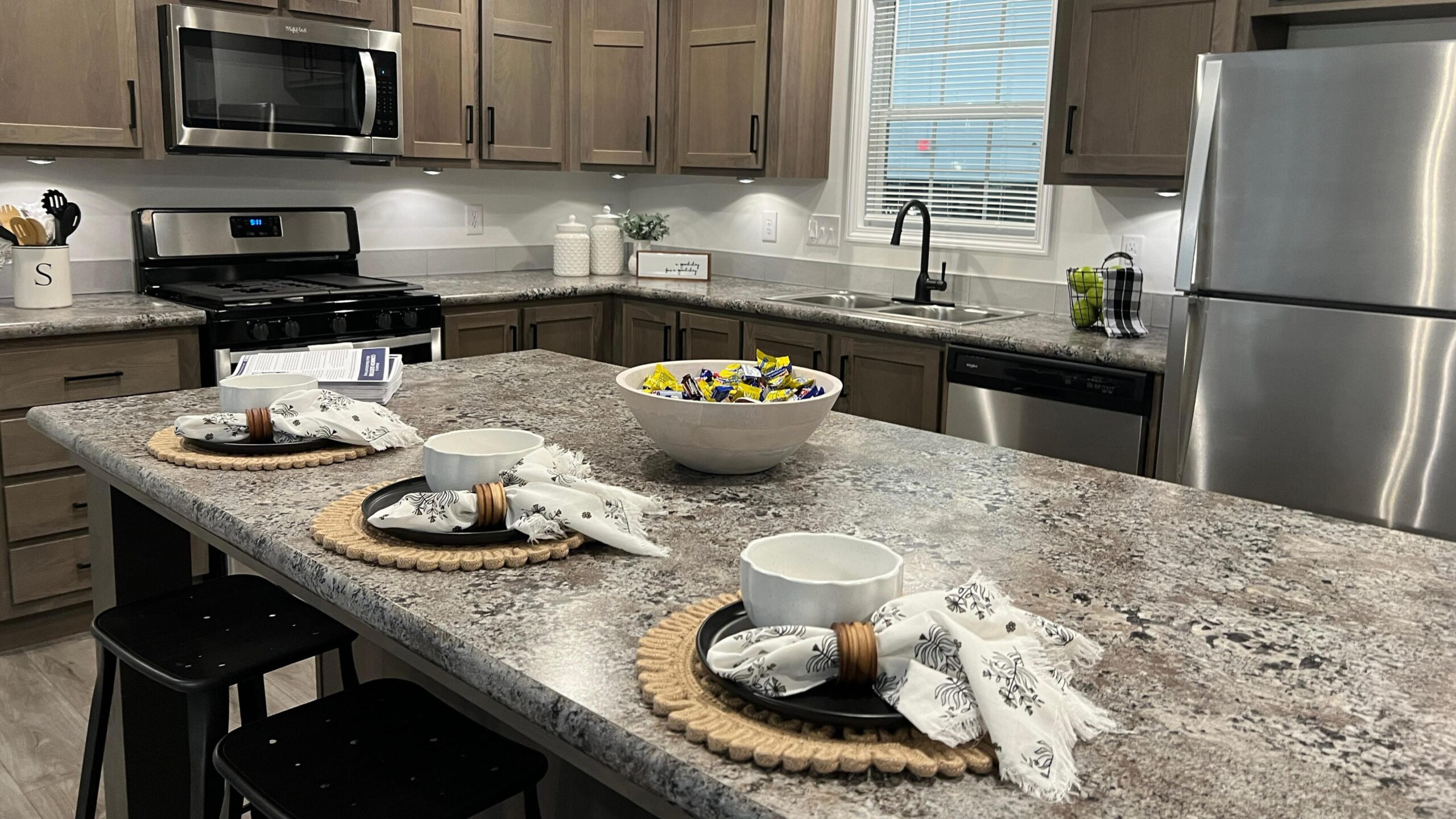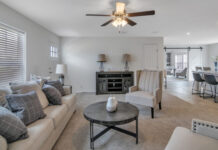Which Type of Mobile Home Community Is Best?
Mobile home communities go by many names, including mobile home park, manufactured home community and land-lease community. Though all of these property names speak to the same type of residential development, there is a great amount of variety available to homebuyers or renters who are looking for just the right kind of community for individual needs.
Here we take a look at all the different types of mobile home parks for homeowners and residents. We provide an overview of the concept for each park type. Where applicable, we include the specific advantages and disadvantages of each type of manufactured home property.
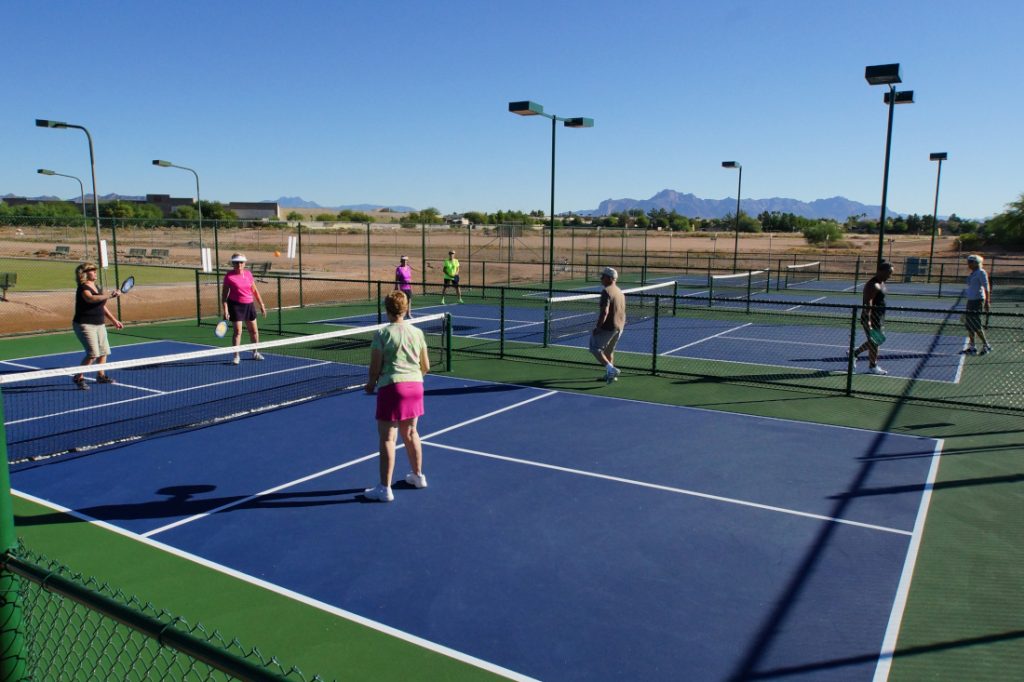
55+, Senior, or Age-Restricted Mobile Home Community
Age-restricted, 55+, and Senior mobile home communities all refer to the same type of park. We prefer the 55+ designation for this type of property, because it’s most specific. What the name means to convey is that you have to be 55 years old or older to live in the community. This is true if you’re a homeowner, a renter or if you’re staying with the homeowner or resident.
Every resident must fit the age classification.
55+ parks are for residents of age to be able to live around their peers. It ensures that your neighbors will be at or near the traditional retirement age.
Now, don’t’ be fooled. 55+ manufactured home communities come in a variety of plans as well. Some might be “retirement communities”, which is another phrase that is sometimes used to designate an age-restricted property. That can be misleading, though. You don’t need to be retired to live anywhere. It’s more of a lifestyle choice.
A retirement community typically is one with a clubhouse or some other central area to gather and engage in activities. You may think of shuffleboard, bingo or bridge. However, those activities relay a very narrow interpretation of what a 55+ retirement community may be. Expand the activities to swimming, pickleball, walking trails, community day-trips and other high-energy functions, and what you have is an “active lifestyle community”, which is another subset of 55+ manufactured home communities.
Disadvantages of 55+ Manufactured Home Communities
Clearly, you can have visitors. Grandchildren and friends of a different generation can stop in, or even stay for a while. But they cannot reside in an age-restricted home community. That means, the address can’t be used to attend school in the district, and you can’t receive mail at the property if you’re not 55 years or older.
That said, if your niece has encountered hard times, she can come over for some help. But she shouldn’t make a habit of flopping for extended periods of time. This would be a clear violation of the park rules. More so, it runs counter to the intent of the park for other residents who choose to make a home in the community.
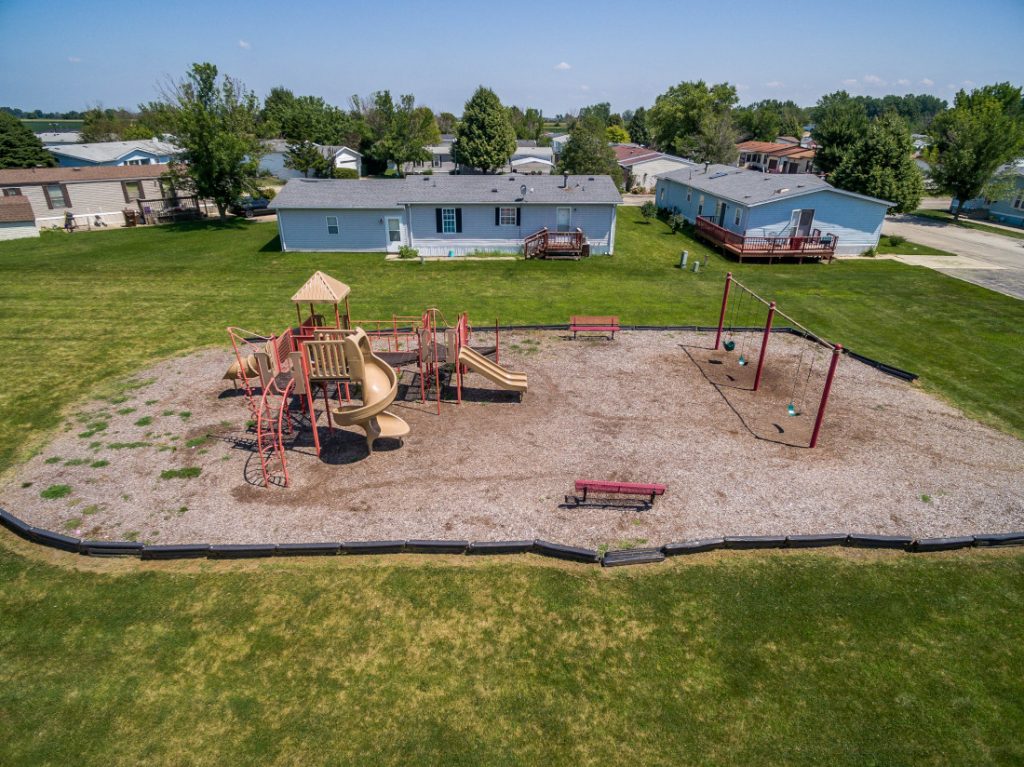
All-Ages Mobile Home Community
This is the other side of the coin from those 55+ parks. There are no age restrictions, clearly. The all-ages park is designed for families. That doesn’t mean a single owner or renter who’s 55 or older can’t reside in the park. What it does mean is, no matter who you are, you can expect to have some kids running around and playing. In fact, this is one of the reasons many 55+ residents choose an all-ages park. Some people want to live solely next to their peers. Others want to have younger people around as well.
With an all-ages property, the amenities will be different from what is experienced at a 55+ property. If there’s a pool, it probably will be more like a recreational pool with a diving board rather than a lap pool, for instance. Chances are there will be some type of playground equipment. Maybe there is a rock climbing wall, which is very popular in recent years. A clubhouse will program activities with the wider set in mind, as well. There may still be bingo, but maybe you’ll find a kids bicycle parade to celebrate the Fourth of July, or “Friday Family Movie” night, with popcorn.
Disadvantages of All-Ages Communities
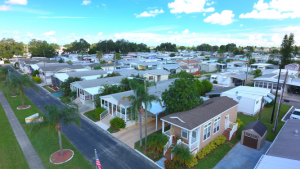 Depending on what market you are interested in, people looking for an all-ages community could find it more difficult to secure occupancy at an all-ages community. Many all-ages communities are set up with the intent of providing affordable housing. This is great for everyone, of course. There is a great need nationwide for affordable housing. However, working families with kids are vastly more abundant than more mature home buyers. So, renting or buying the ideal manufactured home in an all-ages community can be a bit more of a search than for other property types.
Depending on what market you are interested in, people looking for an all-ages community could find it more difficult to secure occupancy at an all-ages community. Many all-ages communities are set up with the intent of providing affordable housing. This is great for everyone, of course. There is a great need nationwide for affordable housing. However, working families with kids are vastly more abundant than more mature home buyers. So, renting or buying the ideal manufactured home in an all-ages community can be a bit more of a search than for other property types.
What is Lot Rent?
While we’re talking about disadvantages, we need to hit on one big consideration for homeowners in the market to live in a community – mobile home lot rent. That is, when you buy a mobile or manufactured home with the intent to live in a community, you’re going to have to pay rent for the land the home is on. Lot rent, as it’s often called, typically ranges between $300 to $900 per month, depending on the area of the country.
We don’t necessarily want to call this a “disadvantage”, because some homeowners and residents are entirely uninterested in owning the land beneath their home.
Why?
It’s more upfront cost. You have to pay taxes on the land each year. If you own the land, you have to maintain it, and utility connections, too. If you rent the land, the community owner/operator is responsible for those elements of the land use.
From the other angle, owning a home on land that you rent can present some challenges. If a community owner decides to shut down the park, or use the community for a different purpose, a resident will need to sell the home or take it with them to a new property. That can be difficult to do if a property is in transition, which leads us to our next property type.
Resident-owned Mobile Home Community
Most manufactured home communities are owned by a company. Maybe it’s a small, family-owned operation, or perhaps it’s a large investor-funded real estate group. Either way, the property owner may own some rental or rehabbed homes in the community, but a large majority of residents own their own homes.
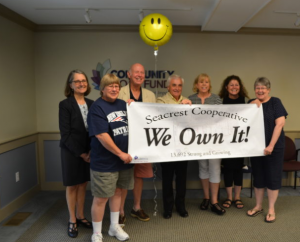
That said, a growing and very influential trend in the manufactured home community sector is the resident-owned community. Many of this property type have sprung up out of necessity and innovation. That is, residents who owned their homes but not the land banded together to buy the park. That means they, as a group, own the homes and the land, right? Often this is done because a small park operator is unable to find a new owner or investor they’re comfortable with.
Regardless, the owners of the park may know they need to move on. So, residents put in an offer, find financing, and buy the whole place. They form a board that implements park rules, lot rents, and decides collectively on changes, including when and to whom the park may be sold.
That’s a vastly simplified version of the process. Turning an owner/operator park into a resident-owned community, or ROC, takes a lot of work. There’s communication, planning, consensus building, and capital investment. Residents can find help in organizing and raising funds for this type of property through an organization called ROC USA, a national organization based in New Hampshire.
Disadvantages of Resident-owned Communities
We can’t say there are any overwhelming disadvantages to living in a resident-owned community. That’s because any group of residents who opt to go through the process would have heavily considered what they were leaving behind. But, as any community operator, large or small, can tell you, managing a community is hard work. There is a high level of communication needed to keep all residents informed. All residents should be safe, and happy about the place where they live. And when the resident is the owner, those very same people need to make all the decisions a corporate owner confronts. This includes advertising to potential residents, deciding which utility or infrastructure upgrades are most important, working with contractors, city hall, and so on. Owning a community is no small bit of work, particularly without a background in real estate and property management.
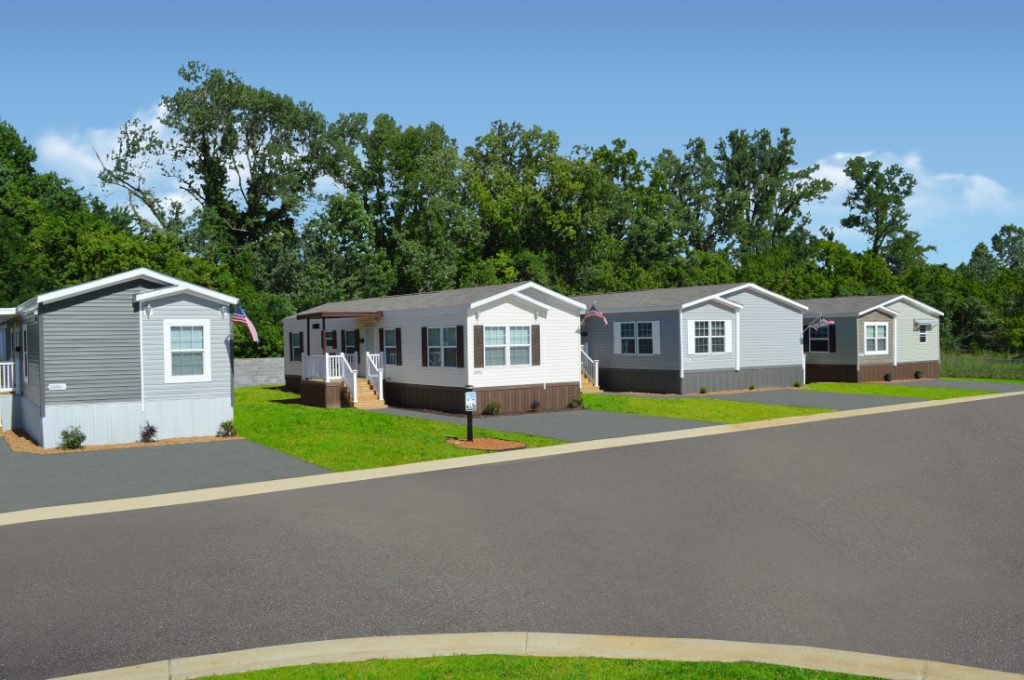
All-Rental Mobile Home Community
What, you say? All-rental community? Yes, such a thing is rare and perhaps unique. There is an award-winning community in Memphis, Tenn., that consists of all rentals. This is really the opposite of the resident-owned community we just covered. However, given the re-built park is nearly 100 percent occupied and planning for a pair of expansions, there clearly is a need for this property type. We anticipate a few more of these rental-only communities popping up.
Disadvantages of All-Rental Manufactured Home Communities
Are there any disadvantages? The only one we can consider is the state of being a renter itself. Renters gain a ton of convenience but forego the perks of homeownership: gaining equity in the investment, and the right to make significant changes in and on the home. But, most often, renters are building up to a position to buy a home. And, it seems renting in an all-rental community would focus the services on specific needs. Add to that, renting a home in a manufactured home community means you don’t have to share walls with other residents on the property, which is the case with many residential rentals on the market.
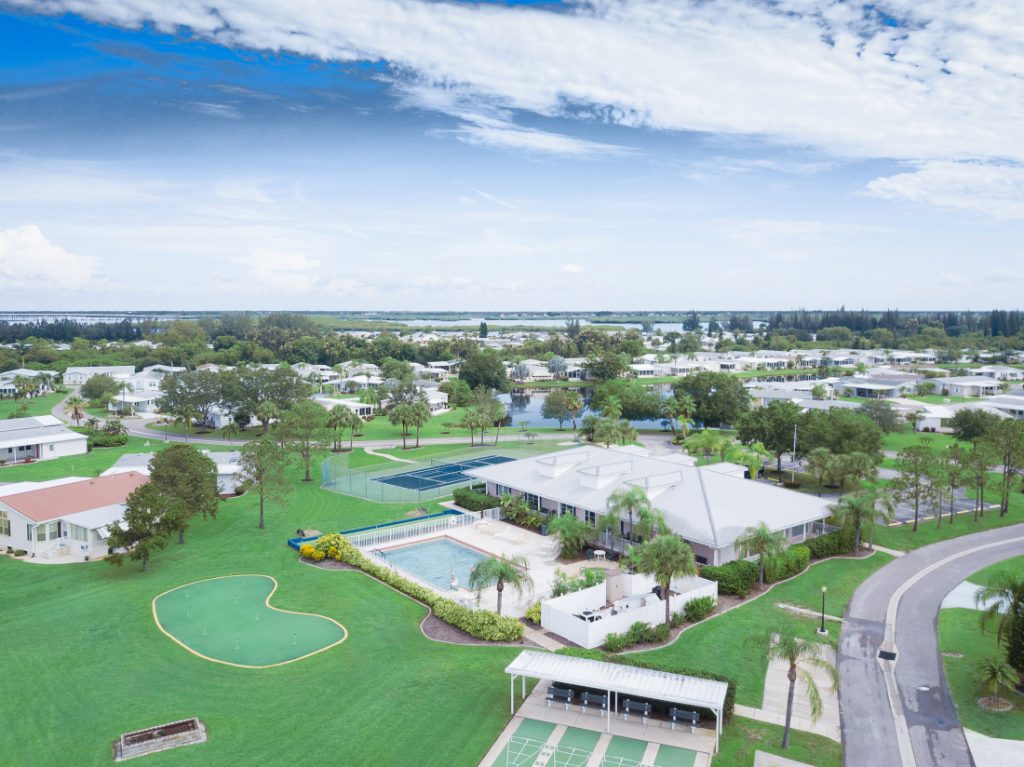
Mobile Home Communities for Golfers
Golf communities have been around a long while, most notably in warm-weather climates like Florida, Texas, and Arizona, where you can golf year round. If you ask someone who’s looking for their next station in life, many people from all backgrounds will say “close to a nice golf course”. So, if you want to buy a mobile home or manufactured home and love golf, why not buy a home in a community that has an agreement for free or discounted golf at a nearby resort or course? And maybe the links are right on your property! There are plenty of manufactured home communities with practice greens, golf courses, and clubhouses, too.
Disadvantages of a Golf Community
Any time you have sprawling, intricate infrastructure comparable to that of even a short, 9-hole golf course, there are going to be increased operating costs. Those costs are managed by the community owner, but each resident can be assured of helping to foot the bill through higher lot rental prices or associated fees. So, if you’re considering a golf community but haven’t played much in the past or may have to curb or discontinue golfing, you may want to reconsider. There’s no use paying the added rent or fees if you’re not going to use the course.
Pet-Friendly Mobile Home Parks
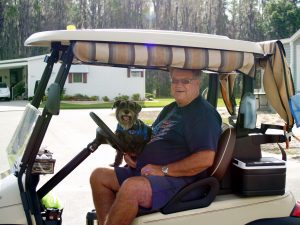 So many of us have pets we adore, and would do anything to make happy. In many cases, a pet is a member of the family. If that’s the case with you, what can a pet-friendly community mean to your enjoyment as a pet owner? The obvious perk is that you can have your pet with you. The furry friend can be in your home, guaranteed through park rules. Sometimes, a park will restrict pets altogether. Other parks will put regulations on how big a pet can be, partly as a way to protect residents from large dogs. This is about more than a potentially “dangerous breed”, as some pets are typified. Imagine a family with newborn twins in a stroller. Even a happy but overly excited Spaniel can create problems for little ones if they jump, slobber or bark loudly.
So many of us have pets we adore, and would do anything to make happy. In many cases, a pet is a member of the family. If that’s the case with you, what can a pet-friendly community mean to your enjoyment as a pet owner? The obvious perk is that you can have your pet with you. The furry friend can be in your home, guaranteed through park rules. Sometimes, a park will restrict pets altogether. Other parks will put regulations on how big a pet can be, partly as a way to protect residents from large dogs. This is about more than a potentially “dangerous breed”, as some pets are typified. Imagine a family with newborn twins in a stroller. Even a happy but overly excited Spaniel can create problems for little ones if they jump, slobber or bark loudly.
That type of scenario is what makes a pet-friendly mobile home park a desirable place. Pet lovers can expect to be comfortable with their four-legged friends because residents understand they will encounter all variety of domestic house pets. Any community of this type is going to have one or more dog parks or dog runs. They also will have pet-themed events, where residents can meet and pets can play. Perhaps when the community is buying new homes, it will choose new homes with a rear mudroom that includes a pet bath. We love going into new homes that have accommodations for pets!
Additionally, pet-friendly manufactured home communities often are located on the edge of open areas and walking trails that are great for strolls with pets.
Disadvantages of a Pet-friendly Manufactured Home Community
Again, any resident who signs up for living at a pet-friendly property is going to be an animal lover. So, we can assume there’s no concern about pet allergies or the other primary reasons people avoid house pets. All residents of a manufactured home community are implored to clean up after their pets. However, if you live in a pet-friendly mobile home park, there is a case to be made for added vigilance where you walk.
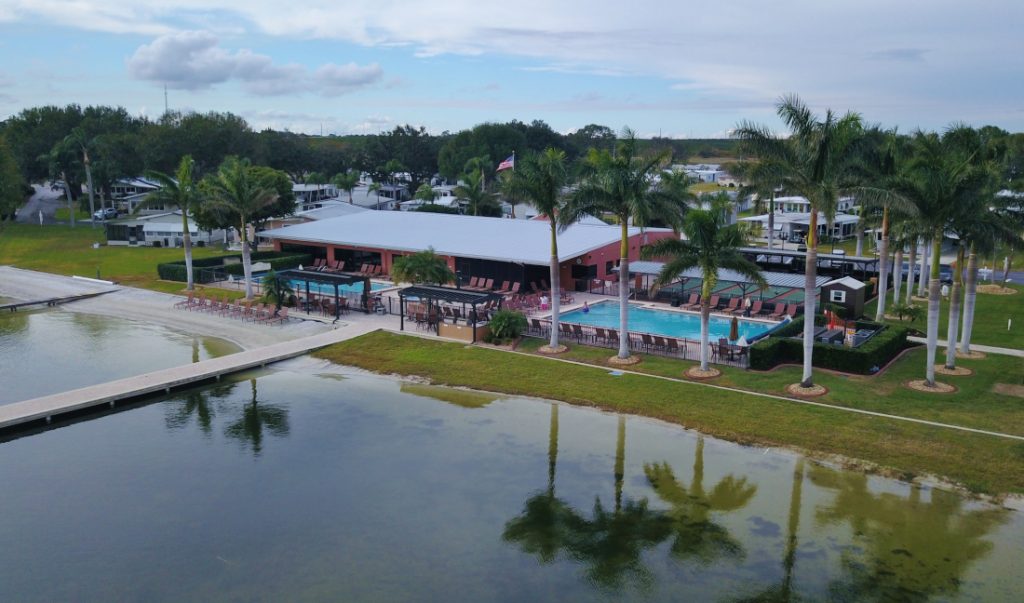
Waterfront Manufactured Home Community
Akin to the golf community, many homebuyers looking for a first home or downsizing will point to a waterfront manufactured home community as the ideal place to live. Waterfront communities, golf communities and others of the sort sometimes are referred to as “lifestyle communities”.
There’s something about the view and the sound of open water that is calming. And, of course, if you’re a water sports enthusiast, the draw is all the more powerful. Boating, fishing, skiing, swimming… whether it’s an oceanside or lakeside, living in a manufactured home on the water in a place like Florida could be just the thing. Many times, a community that caters to residents who love the water will provide added storage space for recreational equipment. Maybe there’s a path to the beach, or public shower for when you need to rinse off the sand. Let’s face it, any place to grill, picnic or play near the water is pretty inviting. Especially if the water is right outside your home!
Disadvantages of Waterfront Communities
As mentioned, the higher-end amenities, including access to beaches and water, likely will result in a higher monthly price tag. But if the beach, marina or lakeside life is what you want, a waterfront community is one of the most accessible ways to attain it.
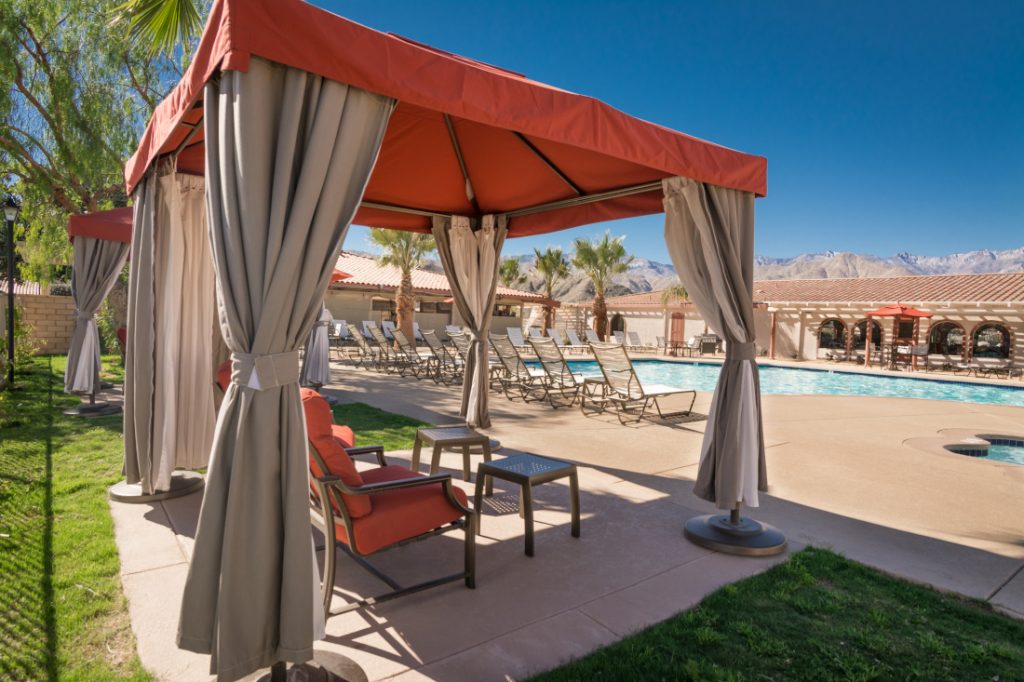
Luxury Mobile Home Communities
What makes a luxury manufactured home community? The first and most obvious element is the choice of homes themselves. Most high-end, or luxury, properties are developed with luxury manufactured homes from the very start. What we’re talking about here is a manufactured home with fantastic wrap-around porches. They may also have large lawns, spa-style master baths, as well as big open kitchens and dining areas with upgraded appliances. The options for luxury in a manufactured home are endless, really. Thinking technology? The newest high-end homes built in the factory have smart thermostats, video door bells, and hard-wired audio entertainment. How about energy-efficient manufactured or mobile homes? Even existing homes can be decked out with upgraded insulation, high-efficiency windows, energy-efficient water heaters, HVAC and appliances.
And that’s just the luxury that comes in the home!
Imagine that beautiful, luxurious new home in a community that has a $5 million clubhouse, organic gardens, or an Olympic-size pool. Perhaps there’s a grand entry gate, wide streets, curbed lanes, nice sidewalks and abundant common space. At an increasingly regular rate, developers are looking to manufactured and other forms of factory built homes to create high-end residential settings at a relatively low cost.
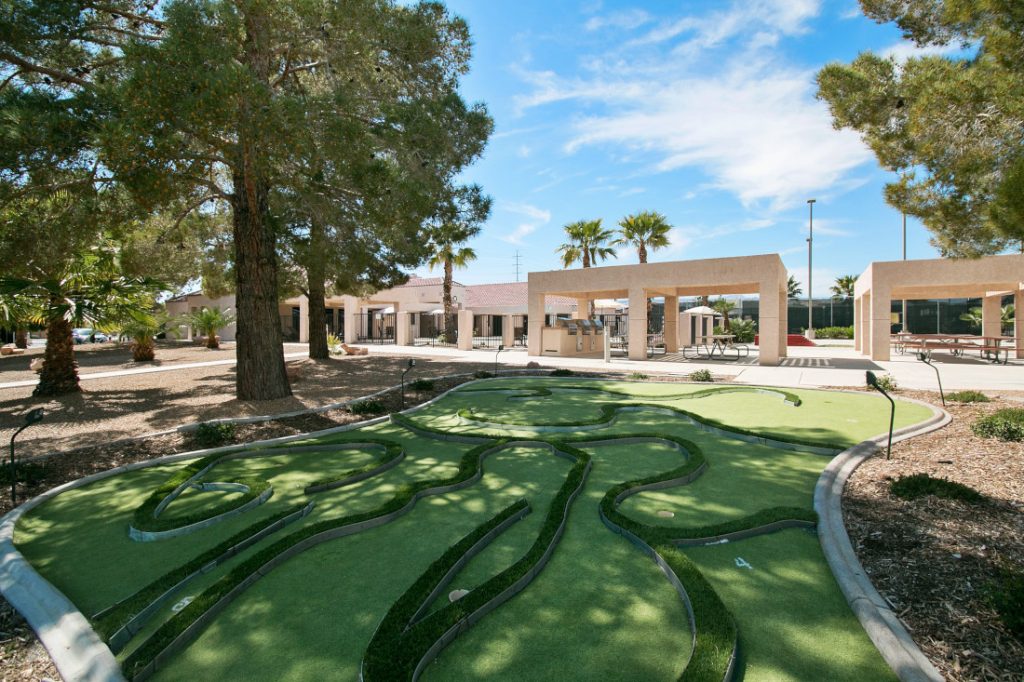
Manufactured Home Communities on MHVillage
Regardless of what type of community is the right fit for you, chances are you’ll find a few properties of interest on the MHVillage mobile home park search page. The search feature allows you to select a state or local area to begin looking. You also can check boxes for features worth considering, such as pet-friendly, or 55+.


